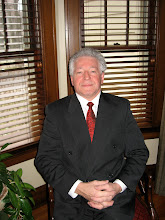Casimir Pułaski: George Washington’s Hero

If it wasn’t for one Pole, the United States of America would not exist in its present form. That Pole was Casimir Pułaski, who helped save George Washington’s life at the disatrous Battle of Brandywine during the American Revolutionary War and contributed to the training and strengthening of the Continental Army.
Posted: March 6, 2016 Filed under: Polish History | Tags: casimir pułaski, pulaski day,saved Washington's life, Washington's hero, who is pulaski Leave a comment
Unfortunately, for many Americans, Pułaski is best known for the three-day weekend his commemoration gives to school-age children in certain parts of the country.
It’s always sad when great historical figures’ lives and accomplishments are overshadowed by their public holidays. Many American children probably don’t fully understand the reason they get Presidents’ Day or Martin Luther King Junior Day off. This is especially true for Pułaski, whose foreign-sounding name and lack of presence in history books means many don’t know who he was.
Polish Patriot
Casimir Pułaski was born in 1745 to a Polish kingdom in decline. Internal corruption, wars and disunity had gradually weakened the once powerful Polish-Lithuanian Commonwealth over the past century. Now, the Russian, Prussian and Austrian Empires were closing in for the kill.
As a young man, Pułaski joined the Bar Confederation, which opposed the Polish King Stanisław August Poniatowski, who had become a political puppet of Russia (not to mention the lover of the Russian queen, Catherine the Great). The Russians had been gaining greater and greater influence in Poland through political intrigue and force, and the Bar Confederation was a last ditch effort to stop them.
From 1768 to 1772, Pułaski fought many battles against the Russians, distinguishing himself as one of the most effective military leaders in Poland. Unfortunately, the Bar Confederation was too small and ill-equipped to defeat the mighty Russian Empire and collapsed. Pułaski was forced into exile, and, although he tried to mount successive campaigns against Russia, nothing came of it. This great Polish patriot had lost his country.
American Hero
In 1777, American inventor and statesmen, Benjamin Franklin, who had been conducting American diplomacy in Europe, invited Pułaski to the United States, which was in the middle of its revolution against Great Britain. Although Pułaski had failed to win freedom for the Poles, he saw the opportunity to help attain liberty for another group of people—the Americans.
He soon met General George Washington and became a volunteer in the Continental Army Cavalry. His American military premier came at the Battle of Brandywine, where the British crushed Washington’s army. Washington was forced to retreat, but almost failed when the British nearly cut him off.
Pułaski and his cavalry played a significant role in distracting the British Army, while Washington escaped with the army. Had it not been for Pułaski’s cavalry charge at this crucial moment, the American army might have been utterly destroyed and Washington might have been captured or even killed. Therefore, it’s not an exaggeration to claim that Pułaski played a necessary role in the United States developing as it did.
After these heroics, Pułaski became a celebrity in the American army and was promoted to Brigadier General. In 1778, Pułaski’s legion was established, consisting of lancers, dragoons and light infantry. Over the next year, Pułaski partook in various battles and contributed to training and strategy within the Continental Army.
On October 9th, 1779, Pułaski led a cavalry charge against the British at Savannah, Georgia. The charge failed and Pułaski was struck by grapeshot and killed. He was buried in Charleston twelve days later.
Legacy
In many ways, Casimir Pułaski represents not only the close union between Poland and the United States from the very beginning, but also the universal values of freedom and sacrifice shared by both countries throughout their respective histories.

Although he was forced to leave his home country, Pułaski understood that the values he fought for in Poland transcend any one nation and apply to people around the world. He happened to fight for the United States, but Pułaski would likely have fought just as fervently for any group opposing tyranny and oppression anywhere.
Pułaski must have loved Poland until the end and, at the end, the greatest gift he could offer her was his life for a people facing similar circumstances. He helped create a country where, in succeeding decades, millions of Poles would emigrate to and create a better life for themselves, while continuing to support the cause of Poland’s freedom from abroad. You could say that he laid the groundwork for Polonia, which, I believe, has made Poland more powerful and influential than it ever could have been on its own.
---{-=@
HICKOK



No comments:
Post a Comment